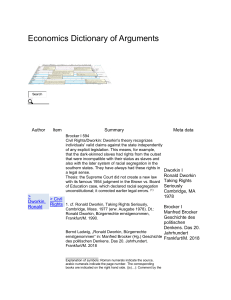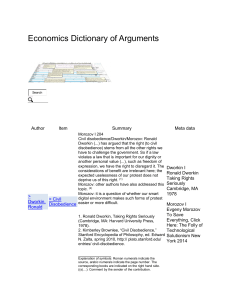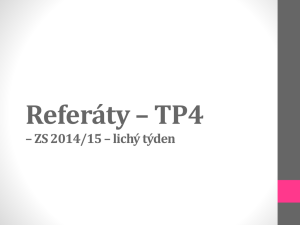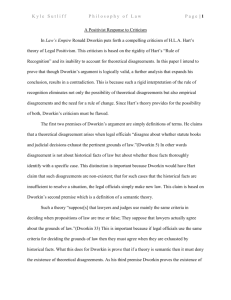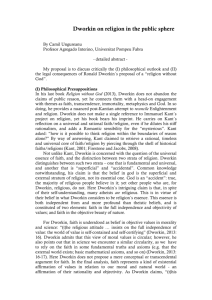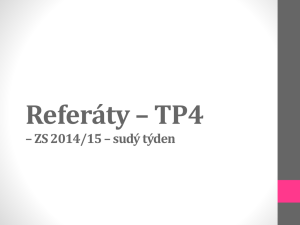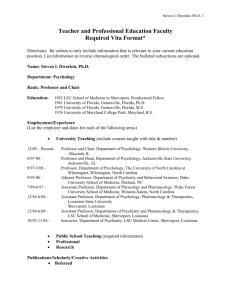Ronald Dworkin
advertisement
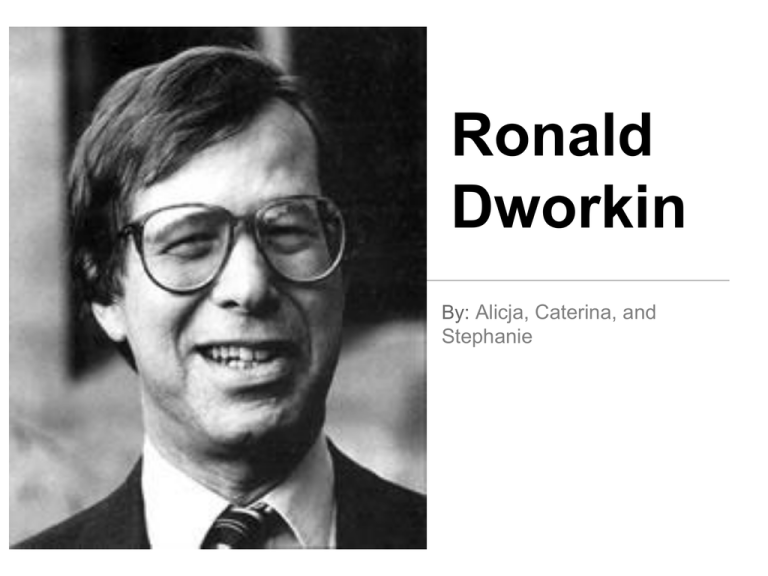
Ronald Dworkin By: Alicja, Caterina, and Stephanie Biography • Ronald Dworkin was born on December 11th, 1931 in Providence, Rhode Island. • He studied at Harvard University and Oxford where he was a Rhodes Scholar. • He then attended Harvard University for Law School. • After working at a prominent law firm in New York City, he became a Professor of Law at Yale University. Professional Positions • Dworkin became a holder of Wesley N. Hohfeld Chair of Jurisprudence. • In 1969, Dworkin was appointed the Chair of Jurisprudence at Oxford. • After retiring from Oxford, Dworkin became the Quain Professor of Jurisprudence at University College London where he consequently became the Bentham Professor of Jurisprudence. • Dworkin is currently Frank Henry Sommer Professor of Philosophy at New York University School of Law Ronald Dworkin “Moral principle is the foundation of law.”- Ronald Dworkin Theory of Law • Dworkin’s model visualizes a community governed by a shared vision of social justice, instead of individual interests. • “We will struggle in politics, but we will march forward towards a finer sense of fairness, towards the realization of the conditions for the flourishing of individual lives”. • Under Dworkin’s model, judges should “implicate these grand questions if political vision”. “Integrity is the key to understanding legal practice. Law's empire is defined by attitude, not territory or power or process.” - Ronald Dworkin Ronald Dworkin’s Philosophy • His views represent a reconstruction of traditional natural law theory. • Believes in the moral content of law. • Dworkin feels law is (or should be) the union of widely held, consistency political decisions or judgments. • Law must be viewed as a political concept and more particularly, as representing political integrity. • This concept is infused with political morality since it requires consistency in the moral choices it represents. Ronald Dworkin • Dworkin argues that moral principles that people believe are often wrong. It can even to the extent that certain crimes can be deemed acceptable if your principles and beliefs are skewed. • This is what makes Dworkin's theory interpretive. He believes that every situation where people’s legal rights are in question, the issue is controversial. • Dworkin believed legal reasoning is an interpretive exercise- to make political and moral sense out of a difficult situation or case. Textbook Questions and Answers • Why does Dworkin favour social justice over individual in his political integrity model? • Dworkin viewed legal reasoning as an interpretive exercise. This makes political moral sense out of a difficult situation or case. Therefore, law is seen as a political concept representing political integrity Quiz 1. Which school does Dworkin currently teach at a) Yale University b) Harvard University c) New York University d) Oxford University Quiz c) New York University Quiz 2. Which was said by Ronald Dworkin? a) “Moral principle is the foundation of law.” b) “Law is the mind and reason of intelligent man” c) “Life is nasty, brutish, and short” d) “The mischief's inflicted by a bad government are less than the mischief's of anarchy” Quiz a) “Moral principle is the foundation of law.” Quiz What does Dworkin’s political model visualize? a) a community governed by a shared vision of political and individual interests b) a community governed by a shared vision of social justice, instead of individual interests c) a community governed by the importance of individual interests, instead of social justice d) a community governed by the people Quiz b) a community governed by a shared vision of social justice, instead of individual interests Ronald Dworkin “We play with fire and take the consequences, because the alternative is cowardice in the face of the unknown."
